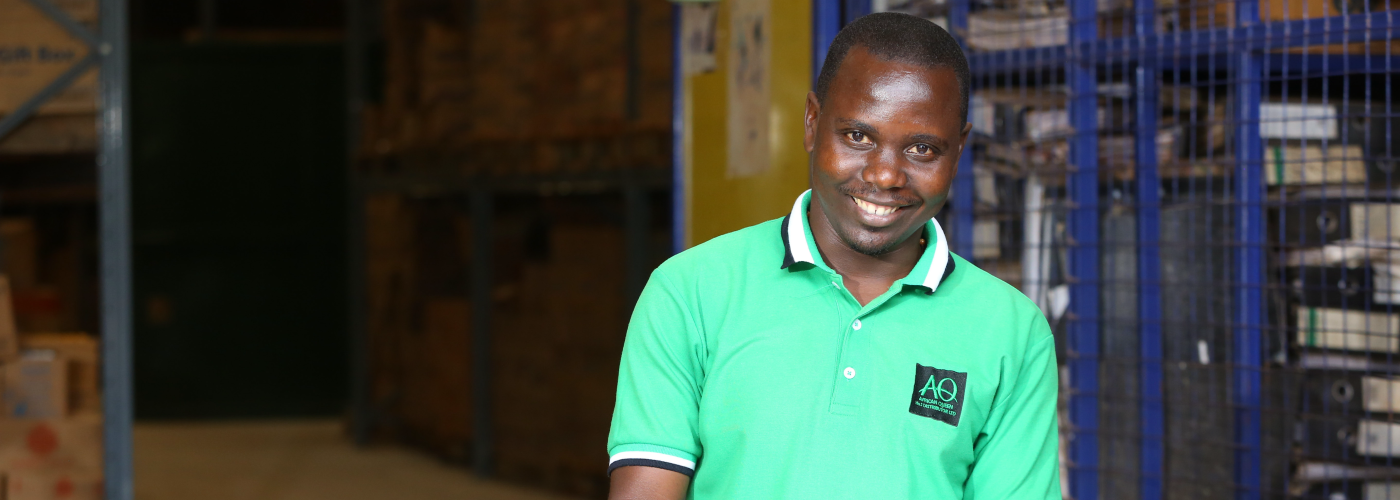Working with Transaction Advisors: Setting the Right Incentives
Image

Around the world, donors like USAID are focused on helping small businesses thrive. These businesses create the lion’s share of formal jobs in emerging markets, and they provide the goods and services local communities need. Still, many small businesses struggle to grow because they can’t access the financing they need.
Enter transaction advisors: private sector firms that work with small businesses and investors, structuring and closing investment deals between them.
USAID sometimes hires these firms to drive private investment into local companies with a positive social or environmental impact. In return, transaction advisors are paid out based on transaction closes and other milestones—like building an investment pipeline—that lay the groundwork for success.
But the devil is in the details. It is important to structure these agreements carefully and to consider the incentives that are being set for transaction advisors.
USAID’s INVEST initiative has mobilized $1.03 billion in private capital for USAID’s development priorities; 72% of that is thanks to partnerships with transaction advisors in a wide range of sectors and geographies. This experience has generated valuable evidence on what works and where there are opportunities to improve outcomes.
INVEST has captured many of these insights in a Transaction Advisory Services learning brief and resource guide. But in a recent Marketlinks webinar, we received a lot of questions on how to structure payments and contracts with transaction advisors. Here is what we have learned:
1. Set the right incentives.
In INVEST’s experience, it is valuable to balance success fees with other milestone-based payments for deliverables, such as work plans, investment pipelines, letters of engagement, advisory support packets, transaction close reports, and periodic or final reports.
This approach has three important benefits. It incentivizes results. It ensures that transaction advisors are focused on impact, rather than closing easy deals. Finally, it makes it feasible and sustainable for transaction advisors to operate in the markets USAID cares about.
“In frontier markets, deals are small, and they take longer to close.” says Jake Cusack of the CrossBoundary Group, which provides transaction advisory services. “Six to eighteen months is typical. That’s a long working capital burden for an advisor to bear for a small deal. You need to reward companies for good closes with success fees, but you also need a willingness to pay for deliverables along the way.”
Experience has also shown that too much emphasis on financial closes can significantly reduce additionality for USAID. “Paying transaction advisors only on deal close incentivizes them to find deals that are already near to closing and that require less work. Those are often low-impact, low-additionality deals,” says Nora Brown of USAID’s INVEST initiative.
Instead, if transaction advisors have foreseeable payments from other types of milestones, they can take risks on investments that may be unpredictable but may have also have a much greater impact.
2. Align on impact.
Investment in developing markets does not on its own equate to development impact. There must be a deliberate effort to articulate program objectives, both in terms of finance and impact.
“You need trust and mission alignment between the different parties – donors, transaction advisors, investors, and companies,” says Cusack.
For example, donors like USAID must communicate their desired development impact in a given sector or geography. Transaction advisors choose from a wide array of companies to support and investors to pursue, so it’s important for them to align closely with donors on how to focus their support.
One specific way to do this is by developing a detailed scorecard to figure out which companies or transactions should receive support. This rubric could include impact (for example, economic growth, job creation, women’s empowerment), the commercial viability of a company (such as its investment readiness or the strength of its management team), and additionality (the extent to which support is needed to unlock a transaction.)
“In terms of additionality, we need to be thoughtful and clear up front about the objectives of a given engagement, whether it’s sectors that are critical to development or other development impacts such as employment,” says Brown. “With that in mind, we can be more targeted and specific in the types of deals that might be appropriate for donor support.”
3. Don’t be blinded by dollar signs.
USAID’s priorities — from climate change to health systems to food security — require significant financial investments, far beyond what is available with donor resources alone. Mobilizing investment at scale is critical, but that doesn’t mean donors should only be interested in supporting large transactions.
“Pioneer deals – small deals between $500,000 and $1 million – can have disproportionate value,” says Brown. “And often the bigger dollar figure deals are more likely to happen anyway. The smaller, first-mover deals offer more additionality and are actually less likely to close without donor support.”
While it is tempting to maximize financial leverage, it’s more important to maximize impact and additionality.
4. Take advantage of local knowledge.
Transaction advisors are a mix of international, regional, and local companies of varied sizes. A common trait across all firms, however, is their presence in local markets. Deep market knowledge, including strong networks, has proven to be a major prerequisite for success.
Transaction advisors can offer a vast array of services. They are typically very familiar with the local market and will have insight into the kind of services that are most needed to accelerate investment. It is important to leverage this context-specific expertise in designing an intervention.
Keeping solicitations from being too prescriptive, while explaining the range of potential support available from USAID, allows firms to propose the kinds of services they consider have the highest additionality. For transaction advisory services, this may include an emphasis on relationship building and investor education, exploration of new forms of financing, or potential integration of specialized technical support for potential investees. These are examples of needs that may not have been foreseen by USAID.
5. Play to your strengths.
Over time, INVEST has learned the importance of a clear distinction of roles between USAID and transaction advisors, ensuring each can contribute their unique and valuable expertise.
In practice, this has meant ensuring a strategic role for USAID in setting overall objectives and general investment criteria, while allowing transaction advisors the autonomy to execute this strategy. In INVEST’s experience, the cases in which USAID has played a more active role in identifying opportunities and selecting firms for support have led to bureaucratic inefficiencies, delays in implementation, and a lower overall rate of transaction closes. Transaction advisors have better networks to stay up to date on the state of opportunities and are better equipped to screen with accuracy and timeliness.
“Where we’ve seen success is where donors and USAID have been willing to leverage the expertise of the transaction advisors, let them lead with their deep knowledge of the markets, and let them drive the way through a portfolio approach that lets advisors pivot and react to the market,” says Brown. “Markets are fluid and dynamic, and we need to be as well.”
When done right, working with transaction advisors can generate short-term impact – from helping a local agribusiness in Nigeria expand production to facilitating investment into a Tunisian biogas company – while helping build up local markets to be more sustainable in the long term.
Read more about mobilizing investment with transaction advisory services in INVEST’s Transaction Advisory Services learning brief and resource guide.
Authors: Kristin Kelly Jangraw and Sharon D’Onofrio, USAID INVEST


